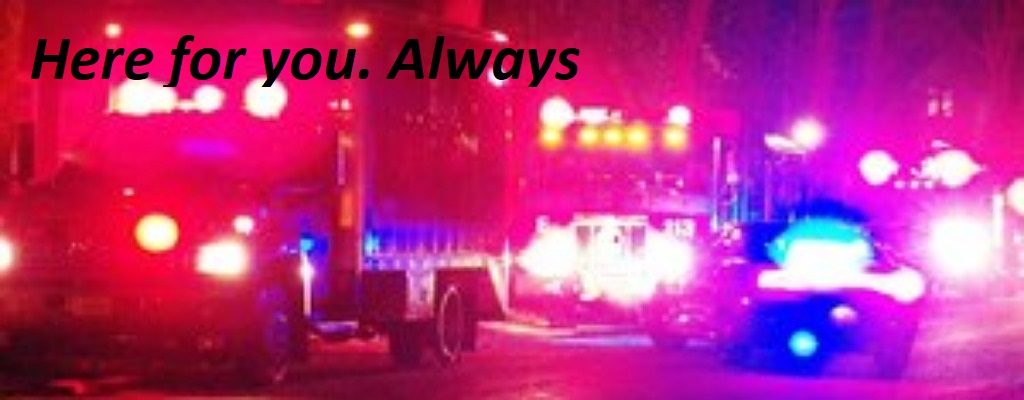Published - Mon, 21 Oct 2024

Chaplaincy Training
The Vital Role of Chaplains in Law Enforcement: Supporting the Well-being of Officers and Their Families
Law enforcement officers face immense pressures, routinely encountering traumatic events and high-stress situations. The emotional toll of this demanding profession can lead to burnout, PTSD, and even suicide. In this challenging environment, the role of police chaplains is increasingly recognized as vital to the well-being of officers and their families. They offer a unique blend of spiritual guidance, emotional support, and practical assistance, acting as a crucial buffer against the inherent stresses of the job.
The Multifaceted Role of a Police Chaplain
Police chaplains are not simply religious figures offering prayers. Their roles are multifaceted and crucial to maintaining the mental and emotional health of law enforcement personnel. Their responsibilities often include:
-
Counseling and Spiritual Guidance: Providing a safe and confidential space for officers to process trauma, grief, and personal challenges. This can involve individual counseling, group sessions, or simply offering a listening ear. https://www.hcunow.education/copy-of-chaplaincy-studies
-
Critical Incident Stress Management: Providing immediate support to officers following traumatic events such as shootings, pursuits, or death notifications. Their presence can help de-escalate emotions and begin the healing process. https://www.ncnewsonline.com/news/local_news/chaplains-can-provide-support-in-times-of-crisis-to-law-enforcement/article_99289558-4452-11ef-ada3-9ba4cc7960e3.html
-
Death Notifications: Assisting officers in delivering difficult news to families, offering compassionate support during an incredibly challenging time. https://www.hcunow.education/copy-of-chaplaincy-studies
-
Community Engagement: Building bridges between law enforcement and the communities they serve, fostering trust and understanding. https://www.hcunow.education/copy-of-chaplaincy-studies https://www.flpd.gov/community-resources/chaplains
-
Support for Families: Extending support to the families of officers, who also experience the emotional fallout of the job. https://www.icpc4cops.org/advocacy--support/why-chaplaincy.html https://aliveemployeesclub.com/serving-those-who-serve_lapd-chaplains/
-
Addressing Burnout and Mental Health: Proactively addressing issues of burnout and mental health among officers, often through educational programs and workshops. https://www.christianitytoday.com/2024/05/law-enforcement-trauma-can-chaplains-help/ https://flsheriffs.org/blog/entry/law-enforcement-mental-health-resources/
The Importance of Chaplaincy in a Crisis
The value of chaplains becomes particularly evident during times of crisis. Following a critical incident, a chaplain's presence can provide immediate comfort and emotional support to officers grappling with trauma. https://www.ncnewsonline.com/news/local_news/chaplains-can-provide-support-in-times-of-crisis-to-law-enforcement/article_99289558-4452-11ef-ada3-9ba4cc7960e3.html They offer a confidential space to process emotions, helping officers cope with the psychological impact of their experiences. https://news.ag.org/en/article-repository/news/2023/10/police-chaplain-offers-a-ministry-of-presence-to-officers
Challenges and Future Directions
While the benefits of police chaplaincy are clear, challenges remain. These include securing adequate funding, recruiting and training sufficient chaplains, and ensuring their services are accessible to all officers regardless of religious background. The future of police chaplaincy likely involves a greater emphasis on evidence-based practices, collaboration with mental health professionals, and the integration of technology to enhance accessibility and effectiveness.
Frequently Asked Questions (FAQ)
-
Are police chaplains affiliated with a specific religion? While many police chaplains are affiliated with religious organizations, many departments strive for ecumenical representation to ensure all officers feel comfortable seeking support.
-
Is the information shared with a chaplain confidential? Yes, information shared with a chaplain is generally considered confidential, similar to a therapist or counselor. However, there are exceptions, such as instances of imminent harm.
-
How can I become a police chaplain? Requirements vary depending on the department but generally involve a background check, training in crisis intervention and pastoral care, and often a religious endorsement.
-
Do all police departments have chaplain programs? While many larger departments have established chaplain programs, smaller departments may not have the resources.
This article highlights the critical role of police chaplains in supporting the well-being of law enforcement officers and their families. Their contributions extend beyond spiritual guidance; they provide essential emotional support, practical assistance, and community engagement, ultimately contributing to a healthier and more resilient law enforcement community.
Watch a Video about Law Enforcement Chaplaincy: (Click the Link)
Video One:
Law Enforcement Chaplaincy - Part One
Video Two:
Comments (0)
Search
Popular categories
Be Ready
2The need for chaplains
2Latest blogs

Chaplaincy Training
Mon, 17 Feb 2025

Chaplaincy Training
Mon, 21 Oct 2024

Chaplaincy Training
Mon, 21 Oct 2024
Write a public review